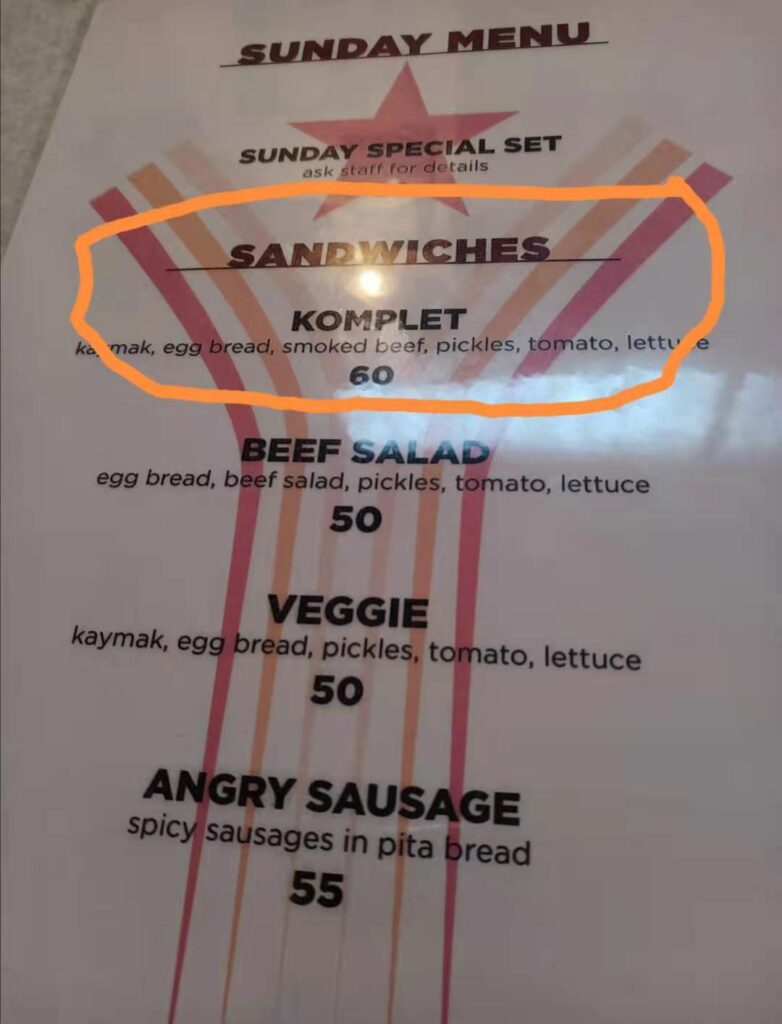FART (verb): an action where gas collected in the rectum passes through the anus and into open and commonly breathable air, sometimes rather violently. (Definition source: the author of this blog post)
In linguistics, there is a thing called false cognates. A more friendlier term might be false friends. These are words that look and sound alike across two different languages, but the meanings are not the same. When you are learning a new language, these words and letters are misleading and can lead to embarrassment when used improperly. Consider the above provided definition. I know it rather well. I have done it often, especially after eating beans and drinking a lot of cheap malt liquor in my university studies in West Virginia. People still accuse me of doing it to this very day. And to those critics, I normally retort, with all the legal wisdom and judicial acumen I can summon: He who smelt it dealt it! A common rejoinder to that is: He who denied it supplied it!
And yes, I just lobbed a fart joke, which is a very low bar if you’re writing humor. Yet, stop and consider if you’re a Russian trying to learn English. Think of the following.
ФАРТ (noun): a Russian world that can mean “luck.” If transliterated from Cyrillic to a Latin alphabet, it would phonetically read as FART.
Not knowing false cognates or false friends can lead to highly embarrassing moments. Imagine a Russian immigrant in Brooklyn, New York City, trying to impress a sexy native New York fashionista by wishing her “All the farts imaginable!” That well-meaning schmuck would get slapped in the face five ways of Sunday.
I know this first hand — but not because I once pissed off a Brooklynite diva. I value my life too much to ever do that. During my first year in China, I once made the mistake of describing my clothing style as shabby to my college class. I, of course, was speaking of the holes in my pants and dress shirt. They erupted in laughter. I looked utterly confused. Then, one of my students rather bashfully informed me that shabby sounds a lot like 傻逼 shǎbī, which can be taken as dumb fuck or motherfucker in Chinese. You can rest assured I never made that speaking mistake again.
Not all false cognates are overly dramatic and embarrassing, though. Some of the most mundane can be found between the Cyrillic and Latin alphabets. Cyrillic Р actually represents the Latin R sound, and В sounds more like the English V. A Cyrillic Н is not an English H, because it’s actually N. Don’t call Я a backwards R, because it represents the sound Ya. And so on. Of course, this is not just limited to the alphabet that Russia and a large section of Eastern Europe uses. Translating the names of food dishes usually leads to some types of language weirdness. That can be from Chinese into English, and also from Serbian into English.

This is the Sunday-only menu at Yugo Bar in Shanghai’s Jing’an district. It’s a relatively new place that serves Serbian food. The last time I was in Shanghai, I was itching to try this place. I never had Serbian food, but as an American with some Slavic blood (Polish) in my family, my curiosity had been stoked and I simply had to investigate. Since I am from New Jersey, I also simply can’t refuse a sandwich and I wanted to try the komplet.

This particular sandwich consisted of beef salad — which tasted like shredded beef mixed with mayonnaise. The condiment slathered onto the Serbian egg bread is kaymak, which is like a sweet, skimmed butter after being churned. There’s also pickles and slices of a type of cured beef that reminded me a lot of Italian bresaola. Think dry-aged prosciutto, but beef and not pork as the cured meat.

I cannot simply say I liked this sandwich. This was love at first bite. Amazed — I was just simply amazed by this komplet. It wasn’t just that, either.

I loved the spicy sausages. Think of what Polish-Americans like to call kielbasa (and actual Poles freak out about that and want to correct their American friends and worst enemies with That’s just a general word for all sausages in our language! What the hell are you talking about?!?!) I write the parenthetical, of course, because we are talking about translation weirdness. It’s like the main thesis here. Anyhow, take what Americans mistake as Polish sausage and just kick up the heat a little. It’s just absolutely delicious. The sausage and sandwiches made me fall in love very hard with Yugo Bar.

Then there was the décor. It consisted of reproductions of the Josip Broz Tito “Not USSR but still Communist” propaganda from when Yugoslavia was a country and didn’t disintegrate into a bunch of extremely violent squabbling nations during the 1990s. That actually happened after he died.

I will absolutely not say I was transported to Serbia or the former Yugoslavia by eating this komplet. That would be false. We’re talking about a pub that serves sandwiches in Shanghai, after all. I have never been to Serbia and don’t know what the country is like. What Yugo Bar did was far more insidious. It made me very curious about Serbian food. It was so much so that I had to go into jealous-smitten-man-who’s-just-met-a-sexy-girl mode. I had to spend long hours using Google to find out as much information as possible. Yes, I actually stalked Serbian food on the Internet.
The results were actually confusing, and this is where we come back to false cognates. The Serbian word “Komplet” looks awful lot like the English “complete.” This is not so.

It is not a “Serbian Complete Sandwich.” This makes the sandwich sound like it is the most Serbian sandwich ever. The word complete, after all, conveys a sense of totality, and komplet doesn’t mean that. It means “set.” A friend from the Balkans remarked that the word can be used for a sandwich that has multiple elements between two fluffy bits of Serbian-styled bread —hence, a set of ingredients. In short, it can be taken as another word for sandwich with multiple ingredients.
I can imagine somebody staring holes into my face at the moment, saying komplet or complete? Who really cares, and why are you splitting linguistic hairs? And that would be a valid question. To that, I will answer. If a sandwich can send me into a tizzy of research into linguistic theory across different alphabets , I must of have loved the taste very, very much. And I did. You should try it. too.
Unfortunately, Yugo Bar is still relatively new and is not findable on Baidu Maps or Wechat Map Sharing. In Shanghai, it’s in Jing’an, and it’s not that far from West Nanjing Road and the American Consulate.
